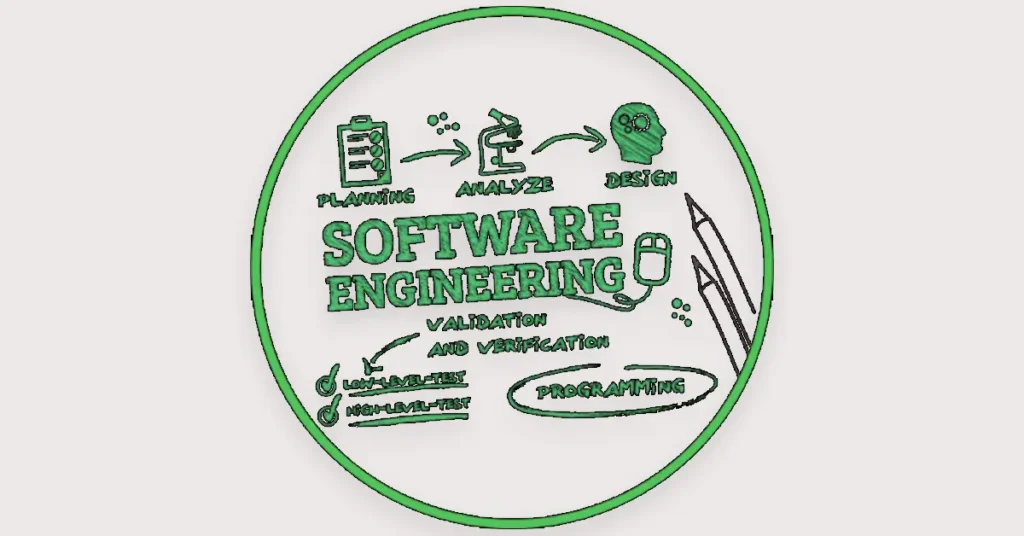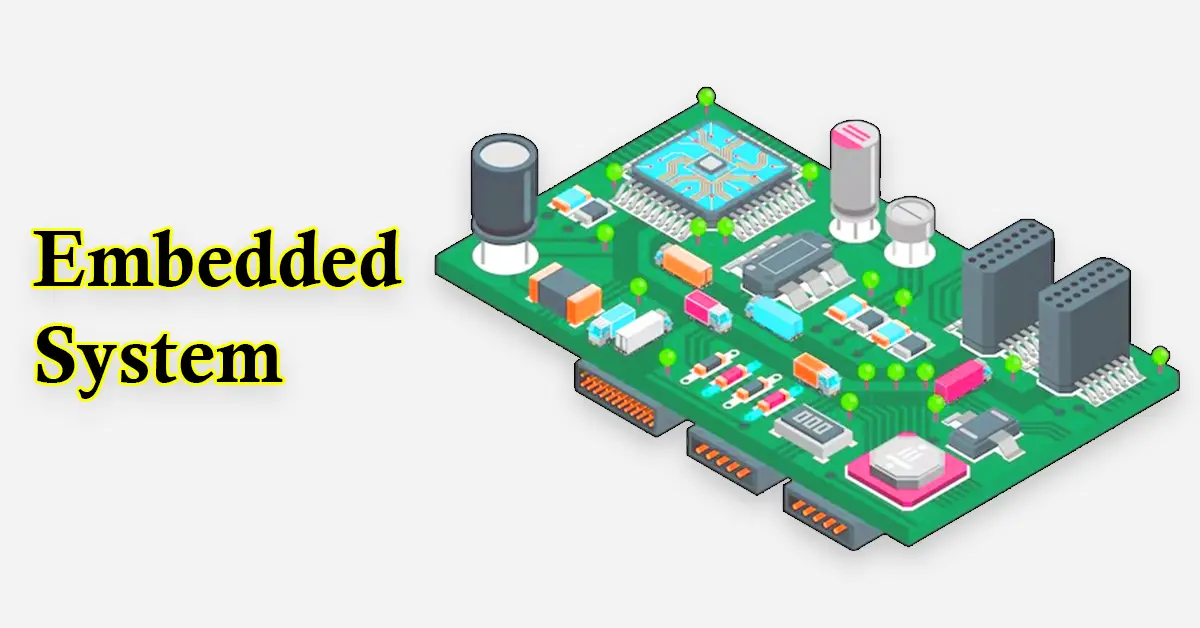Introduction to Software Engineering | Definition, Example, Type, History and Much More.
Published: 23 Nov 2024
What is Software Engineering?
Software engineering is all about designing, building, and maintaining software. It’s like constructing a building, but instead of bricks, software engineers use programming languages, codes, and tools to create programs and apps. This field focuses on making software reliable, efficient, and easy to update so it meets user needs and performs well. From planning and testing to fixing issues, software engineering involves different stages to ensure the software works smoothly and securely for everyone who uses it.
Example of Software Engineering
Here are some popular examples of software engineering:
- Creating a mobile app for messaging.
- Building an online shopping website for easy purchases.
- Developing a game with graphics and sound.
- Designing software for bank security to protect data.
- Making tools for managing projects for teams.
- Setting up a digital system for hospitals to store patient info.
- Updating an operating system for better performance.
History of Software Engineering
The history of software engineering began in the 1950s and 60s when computers first became more common. At that time, programming was done in a simple way, and software was often written directly by computer scientists or mathematicians. However, as software grew more complex, problems like software bugs and failures became frequent.
In the 1960s, the term “software engineering” was introduced to address these issues by applying engineering principles to software creation. New methods and tools were developed to improve quality and organization, and standards were set for building reliable software. Over time, programming languages, testing methods, and project management practices advanced, helping software engineering grow into the structured field we know today, which is essential for building complex and safe software systems.
Types of Software Engineering
- Front-End Engineering: Front-end engineering is about creating the parts of a website or app that users see and interact with, like buttons, images, and layouts. It focuses on making everything look attractive and work smoothly. Front-end engineers use languages like HTML, CSS, and JavaScript to design a user-friendly experience that’s visually appealing and easy to navigate.
- Back-End Engineering: Back-end engineering handles the behind-the-scenes parts of software, like servers, databases, and how information flows. It makes sure data is stored, processed, and sent to the front end correctly and securely. Back-end engineers use languages like Python, Java, or SQL to build a reliable system that supports all the features users interact with.
- Full-Stack Engineering: Full-stack engineering combines both front-end and back-end development. Full-stack engineers work on everything users see, like layouts and buttons, and on the back-end processes, such as data handling and server functions. They’re skilled in creating complete, smooth-running software systems, making sure the user experience is seamless from front to back.
- DevOps Engineering: DevOps engineering focuses on making the software development and release process faster and smoother. DevOps engineers work to automate tasks, improve collaboration between developers and operations teams, and ensure updates are released without issues. They help keep the software running reliably by managing the tools and processes that support constant improvement and deployment.
- Quality Assurance (QA) Engineering: Quality Assurance (QA) engineering ensures that software works correctly and meets high standards before it is released. QA engineers test the software to find bugs or problems and suggest improvements to make it user-friendly and reliable. Their goal is to catch issues early so users have a smooth experience without frustrating errors.

What Does a Software Engineer Do?
- Design software: Plans how the software will work and look, considering user needs.
- Writes code: Uses programming languages to create the software and implement features.
- Tests software: Checks for bugs and errors to ensure everything works correctly.
- Fixes issues: Identifies and resolves problems that arise during development or after release.
- Collaborates with teams: Works with other engineers, designers, and stakeholders to ensure the software meets requirements.
- Updates and maintains software: Regularly improves the software by adding new features and fixing any issues that come up.
Important Attributes of Software Engineering
- Reliability: Software should work correctly and consistently over time without crashing errors. Users need to trust that the software will perform as expected.
- Efficiency: Software should use resources wisely, such as memory and processing power, to run quickly and smoothly without slowing down devices.
- Usability: Software must be easy to use and understand, allowing users to navigate and complete tasks without confusion. A good design enhances the user experience.
- Maintainability: Software should be easy to update and fix when issues arise. This attribute makes it simpler for developers to make changes or improvements in the future.
- Scalability: Software should be able to grow and handle more users or data without performance issues. This is important for applications that may need to expand over time.
- Portability: Software should be able to run on different devices or platforms without needing major changes. This flexibility allows it to reach a wider audience.
Is Software Engineering a Good Career?
Yes, software engineering is a good career because there are many reasons for software engineering:
- High Demand: There is a growing need for software engineers as technology continues to advance, leading to many job opportunities.
- Good Salary: Software engineers often earn competitive salaries, which can increase with experience and skills.
- Diverse Opportunities: You can work in various industries, such as healthcare, finance, gaming, and more, allowing for different career paths.
- Creative Work: Software engineering involves problem-solving and creativity, as you get to design and build new software applications.
- Remote Work: Many software engineering jobs offer the flexibility to work from home or anywhere, making it a convenient option for many people.
How Much Do Software Engineers Make?
Software engineers typically earn good salaries, which can vary based on factors like experience, location, and the company they work for. In general, entry-level software engineers can make around $60,000 to $80,000 per year. With more experience, salaries can rise to $100,000 or even higher. In big cities or for specialized roles, experienced software engineers can earn $120,000 or more annually. Overall, it’s a well-paying career with the potential for salary growth.
What Skills Do Software Engineers Need?
Software engineers need a mix of technical and soft skills, including:
- Programming Languages: To write code efficiently, one has to know languages like Python, Java, or JavaScript.
- Problem-Solving: The capacity to exercise critical thought and resolve issues that come up during the development process.
- Software Development: Understanding the software development process, including design, coding, testing, and maintenance.
- Attention to Detail: Be careful and precise to catch mistakes in code and ensure everything works correctly.
- Teamwork: Working well with others, including designers and other engineers, to build and improve software together.
- Communication: Explaining technical ideas clearly to team members and non-technical stakeholders.
- Adaptability: Willingness to learn new technologies and tools as the field of software engineering evolves.
How to become a Software Engineer?
To become a software engineer, start by learning programming languages like Python or Java. You can study computer science in college or take online courses if college isn’t an option. Practice by building small projects, like simple websites or apps, to strengthen your skills. Understanding software development basics, like coding, testing, and debugging, is also essential. Gaining experience through internships or freelance work can help, and over time, you can apply for entry-level jobs to begin your career in software engineering.
Software Engineering Skills
- Coding: Knowing how to write code in programming languages like Python, Java, or JavaScript.
- Problem-Solving: Finding solutions to technical challenges and figuring out how to make software work better.
- Debugging: Identifying and fixing errors or bugs in the code to ensure the software runs smoothly.
- Software Development: Understanding the steps to plan, build, test, and maintain software.
- Teamwork: Working well with others, including developers, designers, and project managers, to create software.
- Time Management: Organizing tasks to meet deadlines and complete projects on time.
- Learning New Tools: Adapting to new technologies, frameworks, and tools that improve coding and development.
Software Role and Responsibility
- Plan Software: Design how the software will work and look.
- Code: Write the programs to make the software function.
- Test and Fix: Find and correct errors (bugs) in the software.
- Collaborate: Work with team members to meet project goals.
- Update: Improve and add features over time to keep the software up-to-date.
- Document Work: Record steps and changes for future reference.
Advantages of Software Engineering
- Better Quality Software: Software engineering ensures that software is well-planned, tested, and reliable, making it work smoothly for users without frequent issues.
- Efficient Development Process: It uses organized methods and tools, making software creation faster and reducing errors, which saves time and resources.
- Easy to Update and Maintain: Software engineering makes it simpler to add new features or fix problems, ensuring the software stays current and meets user needs over time.
Disadvantages of Software Engineering
- High Cost: Developing quality software requires skilled engineers, tools, and testing, which can be expensive, especially for small businesses.
- Time-Consuming: Building reliable software takes a lot of time due to planning, coding, and testing, which can delay the release.
- Constant Updates Needed: Software needs regular updates and maintenance to stay secure and functional, which can be a continuous and costly effort.
Systems Developer vs. Application Developer
| Systems Developer | Application Developer |
| Low-level programming and system architecture. | Builds specific apps or programs for users to perform tasks. |
| Low-level programming and system architecture. | Games, word processors, and mobile apps. |
| Low-level programming, system architecture. | User interface design, high-level programming. |
| Operating systems and network management tools. | Create user-friendly applications for specific tasks. |
| Rarely interacts directly with users. | Often creates software that users interact with directly. |
Conclusion
Software engineering is an important field that focuses on designing, building, and maintaining software systems. It combines technical skills with strong problem-solving abilities to create software that meets users’ needs. By using different development models, like the waterfall and spiral models, engineers can manage projects effectively and ensure high-quality results. Overall, software engineering plays a crucial role in a technology-driven world, making it possible for us to use applications and systems that help us in our daily lives.
FAQS – Engineering in Software Engineering
Software engineering is the process of designing, creating, and maintaining software applications and systems. It involves using programming languages and tools to write code, as well as applying best practices to ensure the software works well and meets users’ needs. Software engineers analyze problems, develop solutions, and test their work to fix any issues. Overall, software engineering helps build the software we use every day, like apps, websites, and operating systems.
- Verification means checking if the software is being built correctly. Throughout the development process, it guarantees that the software satisfies predetermined requirements.
- Validation is the process of verifying that the correct software is constructed. After development, it guarantees that the finished product satisfies the user’s requirements and expectations.
The main goals of software engineering are:
- High Quality: Create software that works well and is free of errors.
- Efficiency: Use time and resources wisely to develop software quickly and cost-effectively.
- Maintainability: Make it easy to update and fix the software over time.
- User Satisfaction: Ensure the software meets users’ needs and provides a good experience.
Each step of the waterfall model’s linear software development process must be finished before going on to the next. The phases usually include requirements gathering, design, implementation, testing, deployment, and maintenance. Once you finish one phase, you can’t go back easily, so it works best when requirements are clear from the start.
The spiral model is a software development approach that combines elements of design and prototyping. It emphasizes repeated cycles (or spirals) of development, each cycle including planning, risk analysis, engineering, testing, and evaluation. This model allows for gradual improvements and adjustments, making it easier to handle risks and changes throughout the project.
Software re-engineering is the process of improving or updating existing software. It involves analyzing the old software to understand how it works, then making changes to fix problems, enhance performance, or adapt it to new requirements. The goal is to make the software better without scratch.

- Be Respectful
- Stay Relevant
- Stay Positive
- True Feedback
- Encourage Discussion
- Avoid Spamming
- No Fake News
- Don't Copy-Paste
- No Personal Attacks

- Be Respectful
- Stay Relevant
- Stay Positive
- True Feedback
- Encourage Discussion
- Avoid Spamming
- No Fake News
- Don't Copy-Paste
- No Personal Attacks





